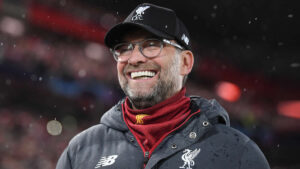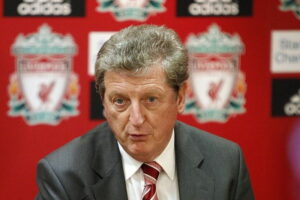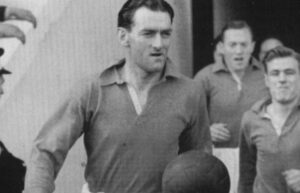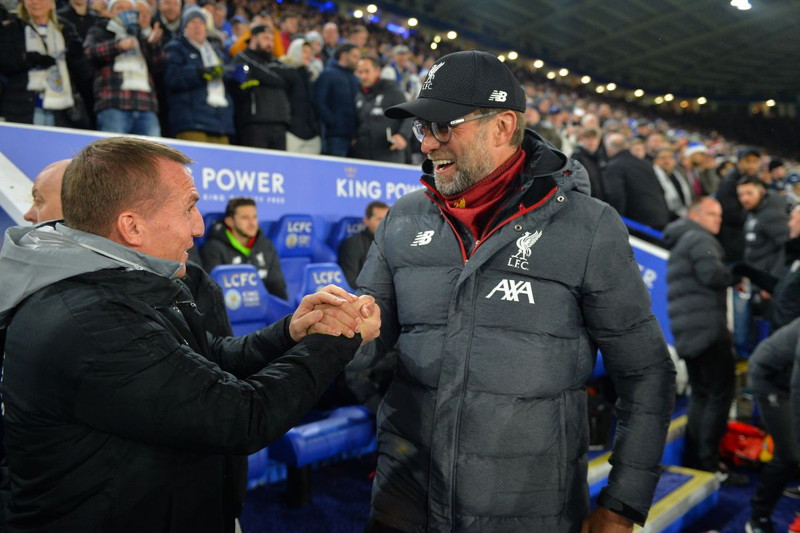
Given the sheer number of phenomenal managers that have taken charge of Liverpool over the years, it seems somewhat false to refer to one that didn’t win anything as a ‘legend’. In the case of Brendan Rodgers, it is certainly true that he will be remembered much more fondly at the likes of Celtic and Leicester City, with whom he did at least manage to win some silverware.
It would be untrue to suggest that his time in the Anfield hot-seat was an overwhelming success, but it is the case that he came close enough to being the first manager to win us that much-craved Premier League title that he should at least be remembered fondly.
On this day 1st June 2012 Brendan Rodgers was appointed as Liverpool's Manager 🔴 @LFC
He had a mixed first season in charge, followed by a terrific second campaign as we came a close second in the League, before a disappointing third season. He led us to 86 wins in 166 games 🏟 pic.twitter.com/oIyzKpSPqE— The Red 🔴 Johnsen (@JohnsenStle) June 1, 2021
The fact that the man who came after him, Jürgen Klopp, did win us that long-desired first trophy means that some are quite dismissive of Rodgers’ achievements. There is little question that he made mistakes during his time at Anfield, as the man himself would probably admit to.
He was young and inexperienced, perhaps not being willing enough to admit his own weaknesses to do what needed to be done to take the club all the way to success. Regardless, there was a point during the 2013-2014 season when anything seemed possible, which is a fact that should be remembered more readily by some Liverpool supporters.
The Early Years
Brendan Rodgers was born on the 26th of January 1973 in the County Antrim seaside village of Carnlough, Northern Ireland. His parents were working class, with his dad, Malachy, being a painter and decorator and his mum a volunteer for Trócaire, a charity. The eldest of five boys, Rodgers was brought up as a Catholic and supported both Sheffield Wednesday and Celtic.
Having attended St John’s Catholic Primary School, he moved to St Patrick’s College in Ballymena until he turned 16. All the while he was at school, Rodgers enjoyed playing football and represented Northern Ireland at schoolboy level, playing against Brazil in 1988.
Reading FC
Brendan Rodgers pic.twitter.com/BIwkFpx8i2— Superb Footy Pics (@SuperbFootyPics) January 13, 2021
A year before, Rodgers began his senior playing career when he was selected as a defender for his local side, Ballymena United. When he turned 18 he was signed by the English side Reading, playing in the reserves. Whilst it would be untrue to suggest that the youngster was pulling up trees professionally, it was nevertheless a major disappointment for him when a generic knee condition saw his career come to an end at the age of 20.
In the years that followed he gained experience playing non-league football for the likes of the Isle of Man side Newport, Witney Town and Newbury Town, working at John Lewis in order to support his family.
Becoming a Manager
Whilst Rodgers was playing non-league football, he also worked as a coach for Reading, gaining experience of life on the management side of the business. When he could, he worked with as many different managers as possible, eventually moving to Spain in order to study different coaching methods. Such was the extent to which he gained experience that José Mourinho, who had taken over the role of manager at Chelsea, invited him to leave his position as the Academy Director at Reading in order to take over as the Head Youth Coach at Chelsea Academy, having been recommended for the position by Steve Clarke.
He duly did as much, being promoted to the position of Reserve Team Manager two years later. In spite of Mourinho leaving the club, Rodgers remained in post under the managers that replaced the self-proclaimed ‘Special One’. As a result, he got to work with the likes of Avram Grant and Luis Felipe Scolari during his time at Stamford Bridge.
It was experience that would eventually lead to Watford asking him to become their manager, with the Ulsterman taking over the Championship club on the 24th of November 2008. Sadly, things didn’t go to plan and he won just two of his first ten games in charge, with Watford in the relegation zone by Christmas.
On this day in 2008, Brendan Rodgers was appointed as Watford manager. What did you make of his short stint? 👇 pic.twitter.com/z0vsGZdqMh
— 🐝 COYHorns 🐝 (@COYHorns_com) November 24, 2022
Things did improve for the club, however, and they finished 13th at the end of the season, ensuring that they avoided a relegation battle. When Steve Coppell resigned as manager of Reading at the end of the season, it wasn’t surprising that Rodgers was linked with the vacant manager’s position.
Initially he distanced himself from the reports, saying that he was fully focused on the job he was doing at Watford. In the end, though, the draw of his old club was too much and a compensation fee of £500,000 was agreed between the two sides in order to allow Rodgers to become the new Reading manager.
Success with Swansea
Rodgers became the new Reading manager on the fifth of June 2009, the compensation fee eventually rising to £1 million. Members of the Watford Supporters’ Trust said that his reputation was ‘severely damaged by the departure. Things didn’t go to plan for him at his former club, with a string of poor results eventually leading to a decision for him to leave his post by mutual consent a little over six months after he’d been given the job.
In spite of the fact that Reading were just one place above the relegation zone in the Championship at the time of his departure, Rodgers was offered the chance to become the Swansea manager.
"Brendan Rogers knew everything"
Danny Graham on working under Brendan Rodgers at Swansea#Swans pic.twitter.com/L9WjbHpjQB
— UndrTheCosh (@UndrTheCosh) July 3, 2022
That was in the summer of 2010, with the Welsh side bringing him in after he had been asked to join Roberto Mancini’s coaching team at Manchester City. He took on the managerial role on the 16th of July 2010, enjoying success during his first few months and being named Manager of the Month for the Championship in February 2011, with the Swans having won five out of the six games that they played.
They secured their place in the Play-Offs by the April, taking them to the following month’s Play-Off Final, where they won 4-2 over, somewhat inevitably, his former club Reading , heading into the top-flight.
Swansea became the first Welsh team to be promoted into the Premier League thanks to Rodgers, who earned the plaudits of many when he consoled the losing manager, John McDermott, and the owner of his former club, John Madejski, after the full-time whistle. Many thought that he wouldn’t be able to play the same possession-based football that he’d introduced at Swansea in the top-flight, but they continued to do so and got some big wins.
The Swans defeated the likes of Newcastle United, Tottenham Hotspur and the club that he would go on to manager, Liverpool, with Rodgers signing a new contract in the February of 2012.
Becoming Liverpool Manager
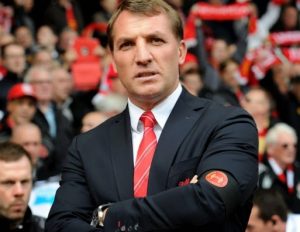 As Rodgers was enjoying success at Swansea, trouble was brewing on Merseyside.
As Rodgers was enjoying success at Swansea, trouble was brewing on Merseyside.
Kenny Dalglish had been given the Liverpool job on a full-time basis in the summer of 2011, having replaced Roy Hodgson during the 2010-2011 campaign.
In spite of the fact that he had led the Reds to two domestic cup finals, winning one of them, the club’s league form meant that the new owners, led by John Henry, felt that it was time to move the Scot on in favour of a younger manager.
Having seen the success of the Oakland Athletics under Billy Beane and his Moneyball theory, FSG felt that a similar thing could be achieved at Liverpool.
🗣️“Brendan, like Sir Bobby [Robson], I was unfortunate not to work with him for longer. Great coach, great manager. I liked him a lot for the time that I was with him."
James Milner wishes he'd worked with Brendan Rodgers for longer at #LFC 🔴
— Empire of the Kop (@empireofthekop) January 16, 2024
In order to give the club the best possible chance of success, it was felt that a young, talented manager working alongside a team built to recruit players was the best way forward. A number of people were interviewed, but it was Rodgers that was given the job on the first of June 2012, immediately earning the endorsement of then-Real Madrid manager José Mourinho.
The Northern Irishman wrote a letter of thanks to the Swansea City supporters, wishing the club well for the future before holding his first training session as Liverpool manager in order to get the club ready for the challenge of the season ahead.
Being: Liverpool
In some ways, Brendan Rodgers was screwed over as Liverpool manager thanks to the fact that the club’s owners decided to allow the filming of a TV documentary series entitled Being: Liverpool during his first season in charge. It led to comparisons to David Brent, the fictional boss portrayed by Ricky Gervais in the TV show The Office, largely because of some of Rodgers’ mannerisms.
Regardless, the club finished seventh in his first season in the hot-seat, one position higher than Kenny Dalglish had managed the year before but without the domestic cup exploits. For Liverpool fans, though, a much more exciting season was on the way.
Seeing all the rumours about another 'Being Liverpool' documentary made me think of this
"Steady."pic.twitter.com/SRRa043E8m
— The Anfield Wrap (@TheAnfieldWrap) January 23, 2024
Towards the end of the 2012-2013 season, Luis Suarez demonstrated his frustration and the behaviour that plagued his footballing career when he bit Chelsea’s Branislav Ivanovic, resulting in him being given a ten-game ban that straddled both that campaign and the next one.
Even so, the Reds won their first three games of the season and Rodgers was named the Premier League Manager of the Month, which was an award he would also be given in March. It was a season filled with excitement, seeing Liverpool top of the table with just three games remaining when they defeated Manchester City 3-2 at Anfield.
The Beginning of the End at Anfield
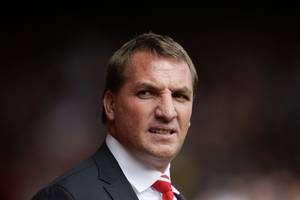 Liverpool lost 2-0 to Chelsea on the 27th of April, meaning that the best that they could hope for, assuming City wouldn’t slip up, was to finish on the same number of points as them. Sadly, City’s goal difference was superior to the Reds’, so the players seemed to believe that they could overturn it in one game when they went 3-0 up away to Crystal Palace.
Liverpool lost 2-0 to Chelsea on the 27th of April, meaning that the best that they could hope for, assuming City wouldn’t slip up, was to finish on the same number of points as them. Sadly, City’s goal difference was superior to the Reds’, so the players seemed to believe that they could overturn it in one game when they went 3-0 up away to Crystal Palace.
Despite leading by that scoreline with just 11 minutes to play, the match ended 3-3 in a game that came to be known as ‘Crystanbul’. Liverpool had scored 101 goals, which was the most in a league season for more than 100 years, but conceded too many time and missed out on the title.
Brendan Rodgers really pulled this front 3 together 😭
This is the worst season have ever witness as a Liverpool fan 😭 pic.twitter.com/yklTKHAD2D
— ™ (@vitor__210) January 18, 2024
For Rodgers, it was the beginning of the end. The problem from a Liverpool fans’ point of view was that the end was far too slow and ponderous. Luis Suarez had been sold to Barcelona, with Mario Balotelli brought in to replace him. Steven Gerrard announced that he would be leaving the club at the end of the 2014-2015 season, which was filled with disappointment as Liverpool seemed to roll over for Real Madrid in the Champions League and a loss to Beşiktaş in the Europa League.
When the Reds lost 6-1 to Stoke City on the final day of the season and Aston Villa knocked them out of the FA Cup in the semi-final, many believed his time was up.
Life After Liverpool
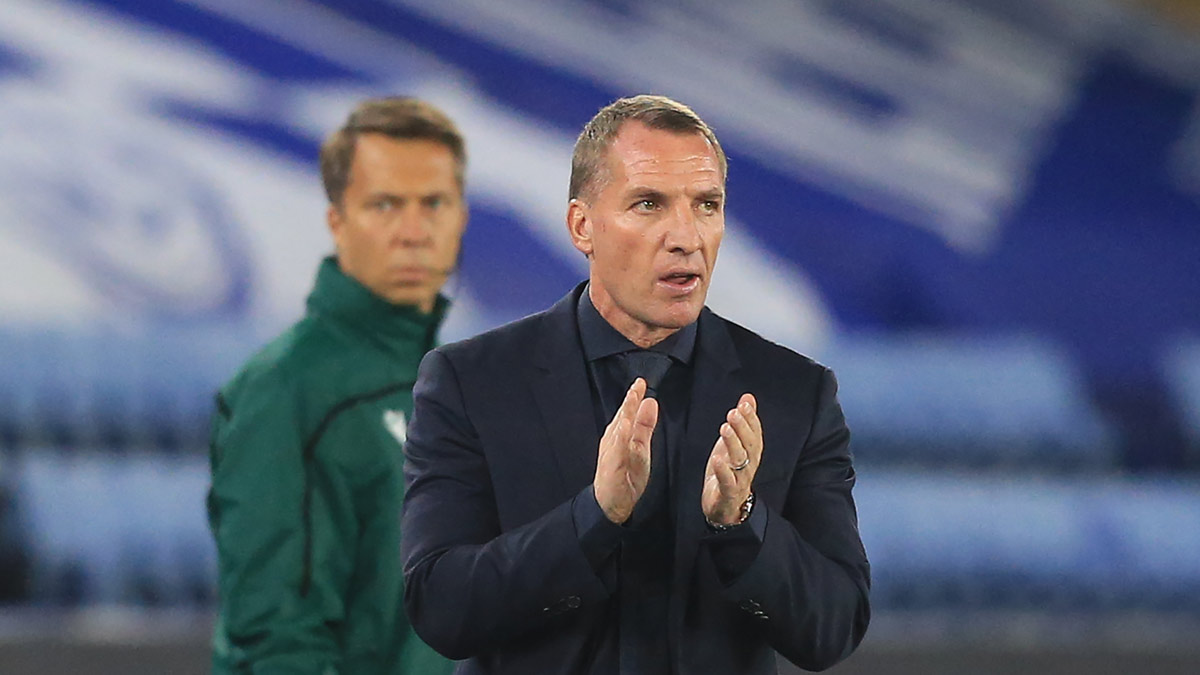
In spite of the fact that he was the first manager since the 1950s to manage Liverpool for three seasons and not win a trophy, Rodgers received the backing of the board. He decided to make changes behind the scenes, but it was all to no avail. It felt as if the club was limping on, which is presumably why Fenway Sports Group made the decision to sack him in the wake of a 1-1 draw against Everton on the fourth of October 2015.
What had become known as the ‘Transfer Committee’ during his time at Anfield had signed the likes of James Milner, Roberto Firmino, Philippe Coutinho and Divock Origi; all players who would have a huge role to play under the next Liverpool manager, Jürgen Klopp.
"For me Brendan was one of the best managers I've ever seen up close" 👏@kschmeichel1 reflects on working with Brendan Rodgers and whether the club made the right decision to part ways with the former Leicester manager 🔎 pic.twitter.com/1oZKBO4HkW
— Sky Sports Premier League (@SkySportsPL) May 1, 2023
For Rodgers, life after Liverpool saw him appointed as Celtic manager. He achieved the remarkable feat of seeing the Scottish club going unbeaten in every single domestic competition that they played in, winning the treble. Such was his success in the Scottish Premier League that he was offered the Leicester City job, taking it up in the February of 2019 and leading the Foxes to the club’s first FA Cup trophy thanks to a 1-0 win over Chelsea in 2021.
It was downhill from there, however, with the club slowly declining until Rodgers left by mutual consent on the second of April 2023. Leicester were eventually relegated at the end of the season.
Brendan Rodgers’ Final record at Wembley:
May 16 2011: Play-off Final for Swansea v Reading
May 15 2021: FA Cup Final for Leicester v Chelsea
Same celebration. pic.twitter.com/FXbJEdn5bE
— Squawka (@Squawka) May 15, 2021
As Liverpool manager, Brendan Rodgers took charge of 166 games, winning 83 of them and drawing 41, losing the other 42. It meant he left the club with no silverware but a win ratio of 50.00%.

